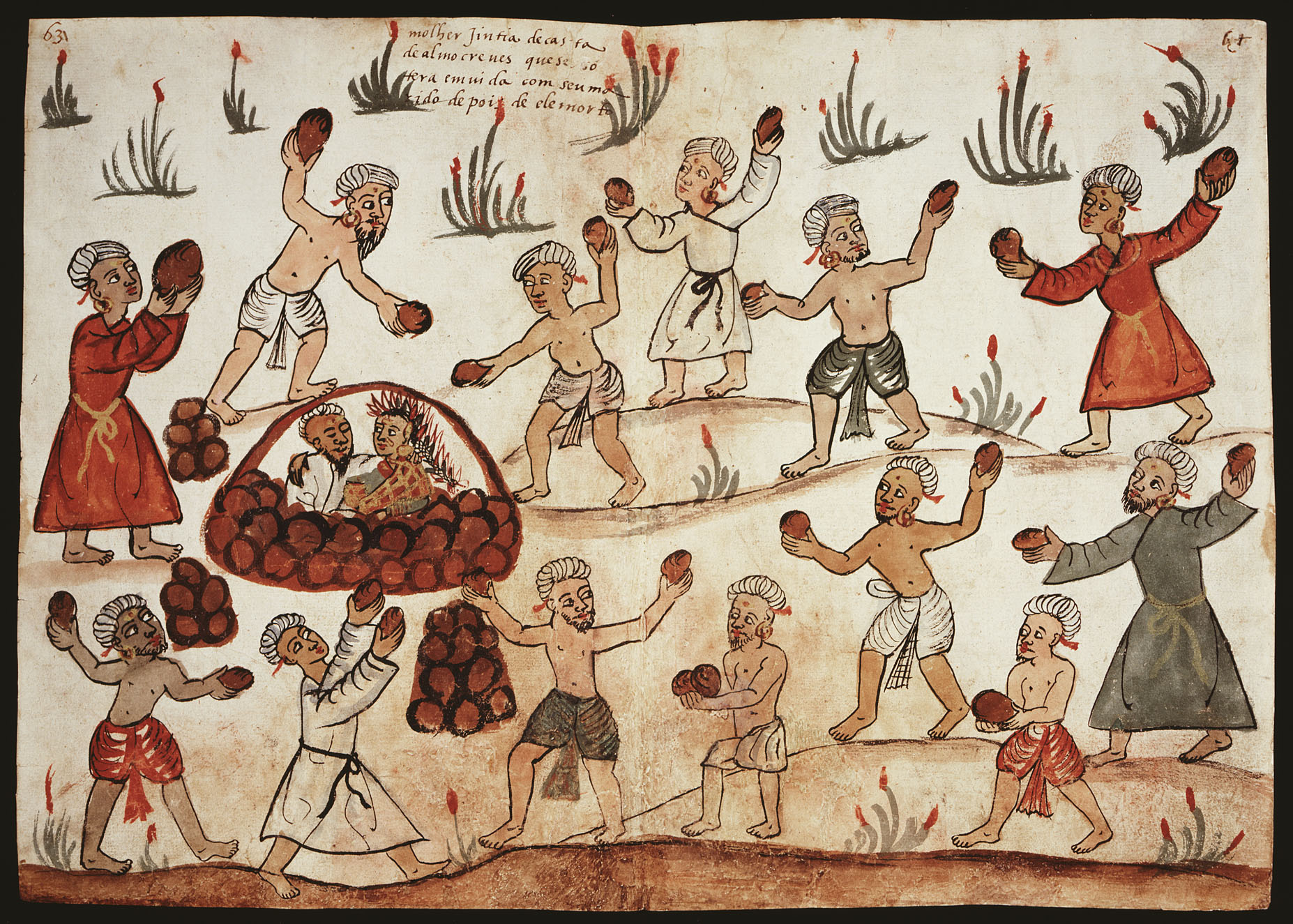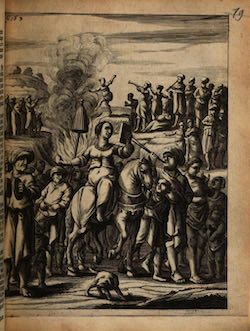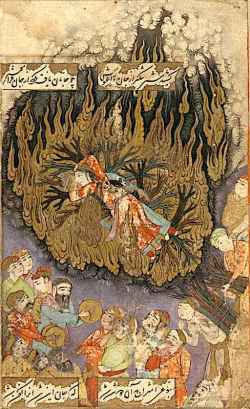Satī. Gentile women of the caste of the cattle drivers, who is buried alive with her husband after he had died
Year: [1540]
Location: Codice Casanatense, Biblioteca Casanatense, ms. 1889, fol. 64r, Rome
Edited by: Chiara Petrolini
Related Documents:
Sati Funeral Practice (1611)
from: Johannes Isacius Pontanus, "Rerum et urbis Amstelodamensium historia", Amsterdam, 1611, p. 189
Scene of a sati. In the foreground, a widowed woman (encountered by Della Valle on November 12, 1623) on horseback holds a mirror and a lemon amidst a crowd. In the background, a woman throws herself into the flames of a funeral pyre (1665)
from: Della Valle, Pietro, De volkome beschryving der voortreffelijke reizen van de deurluchtige reisiger Pietro della Valle, edelman van Romen, in veel voorname gewesten des werrelts, sedert het jaer 1615, tot in 't jaar 1626 gedaan. Amsterdam, Abraham Wolfgang, 1666, vol. 5, pag. 163
Satī. The bride immolates herself on the funeral pyre (1657)
from: Isfahan, Iran
The Israel Museum, Jerusalem
Scene of a Sati, with a woman throwing herself into the flames amid a crowd playing trumpets. Above, a winged devil holds the banner with the book's title and the torch with which he lights the ritual fire. (1670)
from: Abraham Rogerius, Le Théâtre de l’idolatrie ou la porte ouverte, Amsterdam, Jean Schipper, 1670, title page
Woman Committing Sati (17th century)
Harvard Art Museum, Boston (https://harvardartmuseums.org/art/165399)






